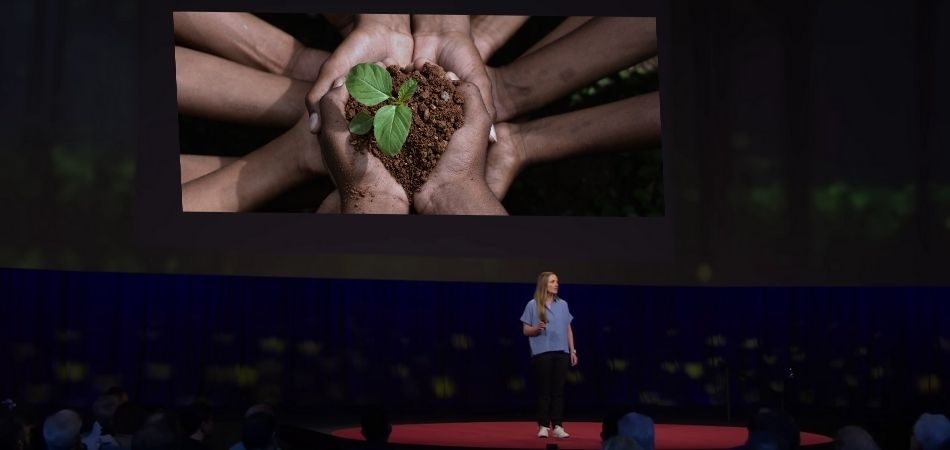Experts, leaders, and visionaries meet at environmental policy conferences to talk about pressing environmental issues and consider cooperative solutions. These conferences address pressing issues like climate change, biodiversity loss, and sustainable development. This is where a question arises: What is an environmental policy conference?
An environmental policy conference in Canada brings together experts, policymakers, and organizations to discuss innovative solutions for sustainability. These conferences focus on key topics such as renewable energy, biodiversity, and urban planning while promoting collaboration among diverse participants.
Are you curious about the importance and role of these conferences? Read this article to discover everything you need to know, including their significance, key participants, challenges, and how they drive global sustainability efforts.
Why Is Environmental Policy Important to Know?
Environmental policies are essential for learning how society manages the relationship between human activity and the natural world. They establish guidelines to protect ecosystems, conserve resources, and mitigate the effects of pollution and climate change. These policies help ensure a sustainable future for generations to come.
Being informed about environmental policies empowers individuals and organizations to make responsible decisions. Whether it’s reducing waste, adopting renewable energy, or supporting conservation initiatives, awareness of these policies helps everyone contribute to global environmental goals. It also ensures compliance with regulations that impact industries and communities.
For those seeking deeper insights, attending the upcoming environmental policy conference can be a valuable opportunity. Such conferences provide a platform to explore new trends, network with experts, and understand how policies are influencing aspects of sustainability and environmental governance.
What is an Environmental Policy Conference?
To discuss important issues impacting our planet, environmental policy conferences bring together leaders, experts, and visionaries. They focus on collaboration and solutions for creating a healthier environment, encouraging innovation, and building a sustainable future. Below, explore the themes and topics addressed at such events.
Climate Change Mitigation and Adaptation
Addressing climate change is a central focus of environmental conferences. Participants explore practical ways to reduce greenhouse gas emissions and adapt to a warming planet. Discussions often center on renewable energy options, sustainable farming practices, and reforestation efforts. Experts share knowledge on innovative technologies and strategies for protecting ecosystems and enhancing community resilience against extreme weather.
Renewable Energy Development and Deployment
Developing renewable energy sources is a key goal discussed in detail at these conferences. Professionals look into expanding access to solar, wind, and hydroelectric power for clean energy solutions. They also highlight challenges like infrastructure, cost management, and resource availability. By learning about these topics, stakeholders discover actionable insights for reducing fossil fuel reliance and achieving energy goals.
Environmental Governance and Policy Innovation
The focus of environmental governance is on developing policies that strike a balance between ecological preservation and economic development. Conversations focus on the role of international agreements, regional partnerships, and local government initiatives. Experts exchange insights on simplifying regulatory frameworks to encourage sustainable practices while addressing public concerns. Through knowledge-sharing, participants gain tools to design policies that are effective and fair.
Biodiversity Conservation and Ecosystem Restoration
Safeguarding biodiversity and restoring ecosystems are important subjects that receive significant attention at these conferences. Participants discuss strategies to prevent species extinction and maintain ecological balance. Topics include habitat restoration, wildlife protection, and sustainable use of natural resources. Speakers often explore how biodiversity contributes to food security, cultural heritage, and global health.
Sustainable Urban Planning and Community Development
Designing sustainable urban spaces is a recurring topic in these conferences. Discussions highlight eco-friendly infrastructure, efficient transportation systems, and waste reduction strategies. Experts advocate for green architecture, renewable building materials, and community engagement for long-term urban sustainability. This area focuses on improving living standards while reducing environmental impact, showcasing success stories from innovative urban projects.
Environmental policy conferences are hubs of learning and collaboration, helping us address environmental challenges more effectively. By attending or learning from these gatherings, individuals can join the movement toward a greener, more equitable future.
Who Attends Environmental Policy Conferences?
Attendees at environmental policy conferences are diverse and all strive to build a more sustainable future. These events provide a platform for sharing knowledge, strategies, and solutions to environmental challenges. Here’s an overview of the main participants you can expect to find at these conferences.
Government Officials
Government representatives are important attendees at conferences on environmental policy. They attend to understand new policies and share governmental priorities. These representatives often use the conferences to discuss strategies for legislation, international cooperation, and environmental regulation. Their involvement ensures that policies are grounded in realistic, actionable frameworks.
Environmental Advocates and NGOs
A passionate and knowledgeable viewpoint is brought by environmental advocates and NGO representatives. They advocate for stronger environmental protections, sustainability practices, and climate action. Their role is to ensure that the voices of local communities and ecosystems are heard in policy discussions. They often push for bolder action on pressing environmental issues.
Scientists and Researchers
To discuss and present their most recent findings, scientists and researchers go to conferences on environmental policy. Their research informs the development of effective environmental policies. These experts offer valuable data on climate change, pollution, and biodiversity. Their work is crucial in driving evidence-based solutions for complex environmental problems.
Business Leaders and Corporations
Companies and business executives attend these conferences to learn about the environmental effects of their respective sectors. They seek strategies for reducing their carbon footprint and increasing sustainability. Corporate involvement also highlights the growing role of the private sector in addressing global environmental challenges. They are essential in implementing policies that drive corporate social responsibility.
International Organizations and Stakeholders
At conferences on environmental policy, international institutions such as the World Bank and the United Nations are heavily involved. They bring a global perspective, working to align policies across borders. These organizations often facilitate discussions about international agreements and how nations can collaborate on global environmental challenges. They also offer guidance on funding and support for environmental initiatives.
Environmental policy conferences provide a valuable space for different sectors to collaborate and share solutions. By bringing together diverse perspectives, these events facilitate meaningful discussions that help shape policies for a sustainable and environmentally conscious future.
What to Consider Before Attending an Environmental Policy Conference?
Participating in an environmental policy conference can be life-changing, offering insights into sustainability challenges and solutions. To make the most of it, thoughtful preparation and informed choices are key. Here’s what you should consider before diving in:
Researching and Choosing the Right Conference
Carefully selecting the event ensures a worthwhile experience. In Canada, there are several reputable environmental policy conferences each year. To identify events that align with your goals and interests, you can explore various ways to find an upcoming environmental policy conference. Choose the conferences known for their quality, keynote speakers, and relevance.
Preparing a Clear Objective
Having a defined purpose enhances your experience. Whether you aim to network, gain insights, or explore policy trends, clarifying your goals beforehand helps you stay focused and get the most out of the conference.
Knowing Key Topics and Trends
Being familiar with the main themes discussed at the conference is beneficial. Read recent news, reports, and studies related to environmental policy. This ensures that you can engage more effectively and ask informed questions during sessions.
Planning Networking Opportunities
Effective networking can amplify the benefits of attending. Look into the attendee list, workshops, and social events to identify key people to connect with. This foresight can help you form meaningful connections with professionals and organizations in the field.
Reviewing Practical Logistics
From registration to travel plans, practical considerations are essential for a smooth experience. Check the location, agenda, and accommodation options early. Adequate preparation allows you to focus entirely on the conference content without last-minute worries.
Attending an environmental policy conference requires thoughtful planning. By choosing events strategically, preparing with purpose, and ensuring smooth logistics, you’ll position yourself to gain valuable insights and connections. Make the most of the opportunity to grow and contribute!
What Are the Costs Associated With Attending an Environmental Policy Conference?
Depending on the venue and size of the event, attending an environmental policy conference may cost a variety of money. These expenses often cover a wide range of categories that attendees should consider. Below are the key costs involved in attending such conferences:
- Registration Fees: Conference registration fees vary based on the event’s size and the attendee’s status. Fees may differ for professionals, students, or government representatives. Some conferences offer early bird discounts or group rates, lowering costs for multiple attendees.
- Travel Expenses: Travel costs include transportation to and from the conference venue. This can include airfare, train tickets, or car rentals. Travel expenses can be higher for international conferences or events held in remote locations.
- Accommodation Costs: Hotel accommodations near the conference venue can be a significant cost. Rates vary depending on the conference’s location, the time of year, and the type of hotel. Discounts may be available for conference attendees.
- Meals and Catering: Attendees should budget for meals during the conference. Some events provide meals or snacks, while others may charge extra. Meals, especially at high-profile conferences, can quickly add up.
- Networking Events and Social Activities: Many conferences offer networking events or social activities, which may come with additional costs. These events often include dinners, receptions, or excursions that help attendees build connections in the field.
- Workshops and Breakout Sessions: Special workshops or breakout sessions might require separate registration fees. These smaller group discussions can provide valuable insights but add to the overall cost of attending the conference.
- Materials and Conference Merchandise: Attendees may need to purchase materials like books, pamphlets, or other resources related to the conference. Additionally, conferences sometimes offer branded merchandise, which can be another added cost.
- Transportation Within the Venue: Getting around a large conference venue or multiple venues may require transportation costs. Shuttle services, taxis, or ride-share apps might be necessary, especially if the event spans large areas or different locations.
- Childcare and Family Expenses: For those attending with children or family members, childcare or family accommodation costs may add to the expenses. Some conferences offer family-friendly activities or childcare services, but these come at a cost.
- Visa and Travel Insurance: For international conferences, attendees may need to obtain a visa. This can incur additional costs, along with the cost of travel insurance. Insurance can cover lost baggage, medical expenses, or cancellations.
The costs of attending environmental policy conferences can add up quickly. Planning and budgeting for travel, accommodations, meals, and additional activities can help attendees manage expenses and make the most of these valuable learning experiences.
The Challenges Faced by Environmental Policy Conferences
Conferences on environmental policy are essential for tackling global environmental issues, but they encounter many difficulties. These events bring together diverse stakeholders, yet they often struggle with issues related to communication, implementation, and inclusivity. Here are some of the key challenges they face.
Limited Funding
Securing enough funding is a major challenge for many environmental policy conferences. Event organizers often rely on sponsorships, grants, and registration fees, which can limit access for participants from lower-income regions. Limited funding can also impact the quality of resources and materials provided at the event.
Diverse Stakeholder Interests
Bringing together various stakeholders, including governments, businesses, and environmental organizations, can create conflicting interests. These differences sometimes hinder effective collaboration. Each group often has distinct priorities and goals, which may not align with the overall objectives of the conference, making consensus difficult to achieve.
Effective Communication
Communication can be a significant challenge, especially when dealing with an international audience. Language barriers, cultural differences, and varying levels of knowledge about environmental issues can complicate discussions. Ensuring clear, effective communication is crucial for collaboration and ensuring that all voices are heard during the conference.
Political and Economic Barriers
The results of environmental policy conferences are frequently influenced by political and economic factors. Governments may prioritize short-term economic growth over long-term environmental goals. These influences can create a gap between the desired outcomes and what is achievable, often leading to slow or limited progress in addressing key issues.
Inclusion of Local and Indigenous Voices
Indigenous people and local communities can find it challenging to be included in large conferences. These groups often lack the resources to attend and are not always represented in the decision-making processes. Ensuring their voices are heard is crucial for developing policies that are fair and equitable for all stakeholders.
Environmental policy conferences face many challenges, but addressing these obstacles can improve their effectiveness. Ensuring greater inclusivity, better communication, and sufficient resources will help create more impactful and productive events focused on global environmental progress.
How Do Environmental Policy Conferences Shape Global Sustainability Goals?
Environmental policy conferences play a significant role in shaping global sustainability goals. These gatherings bring together leaders, policymakers, and experts to discuss strategies for a sustainable future. Below are some ways they contribute to driving meaningful global change.
Promoting Collaborative Policy Development
Cooperation at these conferences plays a crucial role in aligning global sustainability policies. For example, at the top environmental policy conferences in Canada, experts exchange innovative ideas, develop frameworks, and collaborate on unified strategies. These events provide valuable platforms for building partnerships that influence both global and regional environmental goals.
Encouraging Knowledge Sharing
Knowledge sharing is a cornerstone of these conferences, enabling stakeholders to access the latest research and data. This promotes evidence-based decision-making. Key events ensure a platform for diverse participants to exchange findings and apply successful strategies in their respective regions.
Facilitating International Agreements
International agreements are often a direct outcome of discussions at these conferences. Countries come together to negotiate and draft agreements on environmental protection. Such collaborations demonstrate the power of collective action in achieving long-term sustainability objectives across various sectors and regions.
Supporting Grassroots and Community Involvement
Conferences emphasize the importance of community involvement in achieving sustainability goals. They highlight successful grassroots projects and strategies that can be replicated globally. These efforts ensure policies remain inclusive, addressing the needs of local and marginalized communities in the larger sustainability framework.
Driving Corporate and Industrial Commitment
Engagement with industries at these conferences ensures the private sector’s commitment to sustainability. Businesses are encouraged to adopt green practices and invest in eco-friendly innovations. This collaboration helps make the connection between environmental policies and practical, scalable implementation in global markets.
Environmental policy conferences shape sustainability goals by promoting collaboration, sharing knowledge, and encouraging actionable commitments. Their impact is global, inspiring diverse stakeholders to take bold steps for a sustainable and inclusive future.
The Future of Environmental Policy Conferences: What to Expect?
As global priorities continue to change, there are exciting opportunities for environmental policy conferences in the future. These events will adapt to address emerging challenges and integrate technological advancements. Below are key aspects expected to shape their future direction.
Increased Integration of Technology
Technological advancements will play a larger role in future conferences. Virtual platforms can make events accessible to participants from remote locations, reducing travel-related carbon emissions. Advanced tools like real-time translation and AI-powered analytics will improve discussions and help attendees focus on impactful solutions.
Greater Focus on Youth Leadership
Youth involvement will become a central theme in upcoming conferences. Younger generations bring fresh perspectives and innovative approaches to environmental challenges. Platforms will be created to amplify their voices, allowing them to lead discussions and influence the direction of global sustainability efforts.
Enhanced Regional Collaboration
The importance of regional partnerships will increase as conferences concentrate on tackling regional environmental concerns. Building networks within specific regions ensures solutions are practical and relevant. These collaborations will allow for specific strategies that respect cultural and geographic differences while maintaining a global perspective.
Expansion of Interdisciplinary Approaches
Future conferences will emphasize interdisciplinary approaches, bringing together diverse fields like technology, health, and agriculture. Collaborative efforts across different sectors will result in complete solutions. This broader approach will allow for holistic policies that address multiple dimensions of sustainability challenges.
Emphasis on Long-Term Impact Measurement
Impact measurement will be a growing priority in environmental policy conferences. Attendees will focus on tracking the effectiveness of implemented policies over time. The introduction of standardized metrics will ensure accountability, allowing for more transparent evaluations and continuous improvement of sustainability goals.
The future of environmental policy conferences is promising, with a focus on inclusivity, technology, and measurable outcomes. These events will continue to grow, addressing new challenges while driving progress toward a sustainable and balanced future.
Frequently Asked Questions About What is an Environmental Policy Conference?
Taking part in environmental policy conferences can raise questions for those unfamiliar with their purpose, structure, or benefits. Below, find answers to some common questions that can help you understand what to expect and how to maximize your participation.
What Are the Networking Opportunities at Environmental Policy Conferences?
Environmental policy conferences provide unparalleled networking opportunities with experts, policymakers, and organizations. Attendees can build meaningful relationships, collaborate on projects, and exchange ideas in workshops, panel discussions, and social events. Effective networking at these conferences often leads to long-term partnerships in the sustainability sector.
Are Environmental Policy Conferences Suitable for Students and Early Career Professionals?
Yes, these conferences are highly beneficial for students and early-career professionals. They offer a platform to learn from seasoned experts, gain exposure to real-world challenges, and access mentorship opportunities. Many conferences also include sessions or workshops tailored to emerging leaders in the field.
How Can Attending Conferences Enhance My Career in Sustainability?
Participating in environmental policy conferences showcases your commitment to sustainability and expands your expertise. By engaging with industry leaders and staying updated on the latest trends, you position yourself as a knowledgeable professional, opening doors to new career opportunities and leadership roles in the environmental sector.
Are There Virtual Attendance Options for Environmental Policy Conferences?
Yes, many conferences now offer virtual attendance options. These allow participants to join discussions, watch presentations, and network online. Virtual access reduces travel costs and environmental impact, making it easier for a global audience to engage with crucial sustainability topics.
How Do Conferences Address the Needs of Diverse Participants?
Environmental policy conferences aim to be inclusive, featuring diverse speakers and addressing topics relevant to various regions and communities. Many events also provide scholarships or reduced fees for underrepresented groups, ensuring that voices from all backgrounds contribute to sustainability solutions.
What Should I Bring When Attending an Environmental Policy Conference?
To make the most of the experience, bring essentials like business cards, a notebook, and a fully charged device for notes and networking. Research the event agenda in advance and prepare specific questions or topics you’d like to discuss with other attendees or speakers.
Bottom Line
The goal of environmental policy conferences is to shape strategies and solutions to address environmental challenges. They bring together diverse voices, promote collaboration, and inspire actionable steps toward sustainability. These events are vital for building a greener, more resilient future through shared efforts and innovation.
So, what is an environmental policy conference? These are influential conferences where experts, policymakers, and organizations focus on key issues like climate change, biodiversity, and renewable energy. They provide platforms for networking, sharing ideas, and creating solutions that contribute to Canada’s environmental goals and global sustainability efforts.
If you’re planning to attend, focus on selecting the right event, preparing your goals, and engaging actively. Stay informed about topics, participate in discussions, and make meaningful connections. Best wishes for your path toward impactful environmental advocacy and solutions!










